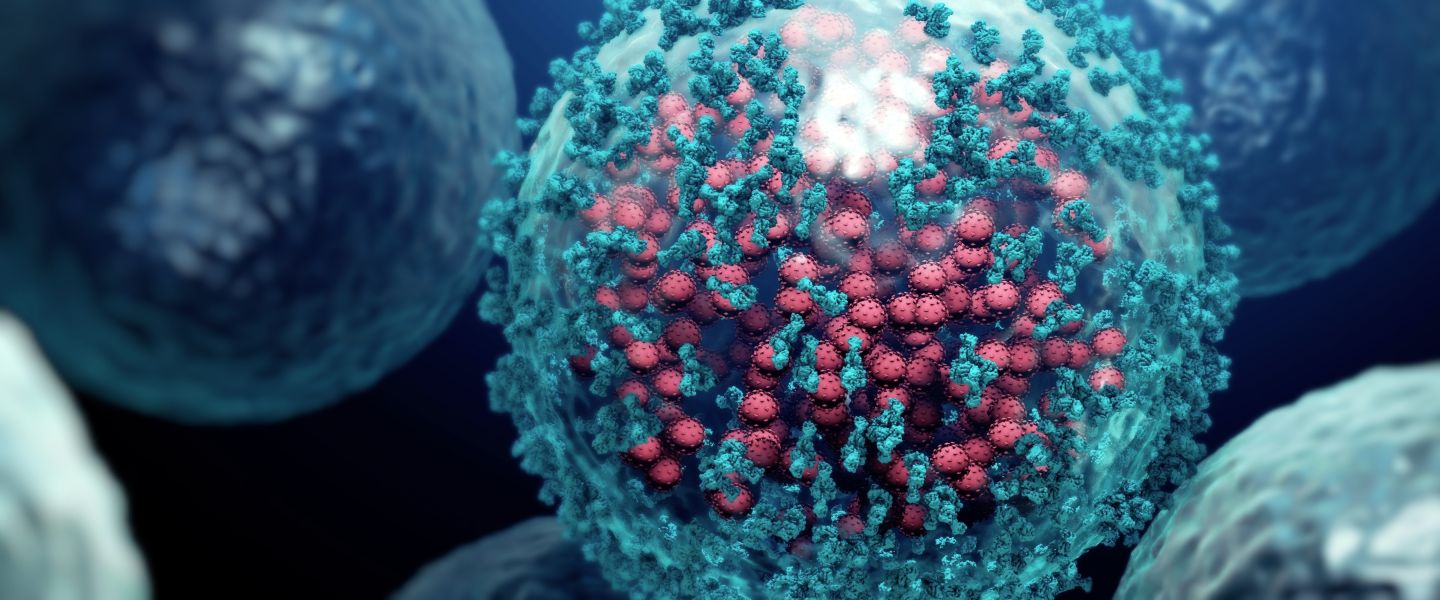SHARING / REPOSTING GUIDELINES: We're very happy to have posts/articles shared as direct links.
However, if you are replicating and re-posting information from this website or our posts, Abbey requests that you:
A) Only ever share articles in part (not in full). (eg. You can lift a paragraph as a way of introducing your readers to the topic) B) Be sure to always provide a direct link/URL back to the full original article here on the MyHealingCommunity.com website. Thanks in advance for your co-operation when sharing and re-posting any and all information that appears on this website.
MR Diet; The Evidence, Research and Important Considerations for Cancer Patients
Methionine Restriction Diet for Cancer Patients
Methionine restriction (MR) is a dietary strategy for reducing methionine intake, an essential amino acid many cancer cells depend on for growth and survival. Here are some examples and guidelines for implementing an MR diet.
Example of an MR Diet
General Guidelines
Focus on Plant-Based Foods: Methionine is most prevalent in animal products such as meat, poultry, fish, eggs, and dairy. A plant-based diet, particularly a vegan diet, is naturally lower in methionine[12][13][14].
Avoid High-Methionine Foods: Limit or avoid foods high in methionine, including Animal products (meat, fish, poultry, eggs, dairy), certain nuts and seeds (e.g., Brazil nuts, sesame seeds), and some grains.
Include Low-Methionine Foods: Emphasize foods low in methionine, such as fruits (e.g., apples, oranges, berries), vegetables (e.g., leafy greens, carrots, broccoli), and lentils.
Example Methionine Restricted Meal Plan
Breakfast: Oatmeal made with water or almond milk, topped with fresh berries and a sprinkle of flaxseeds.
Lunch: Mixed green salad with various vegetables (e.g., tomatoes, cucumbers, bell peppers), dressed with olive oil and lemon juice. Lentil soup or a chickpea salad.
Dinner: Stir-fried vegetables with regular tofu.
Snacks: Fresh fruit (e.g., apple, banana), raw vegetables, and a handful of almonds.
The MR Diet Research
Dr. Hoffman is a prominent researcher of cancer metabolism, particularly known for his work on methionine restriction (MR) as a potential cancer therapy. However, it is important to clarify that Dr. Hoffman is not a medical doctor (M.D.) but holds a Ph.D. in Biology. His expertise lies in research and developing cancer treatment models rather than clinical practice. His lab’s research has significantly contributed to the understanding of methionine addiction in cancer cells. The MR diet is often referred to as the "Hoffman effect." His studies have shown that many cancer cells depend on methionine for growth and survival, unlike normal cells, which can synthesize methionine internally[6][9].
Clinical Studies and Trials
Several clinical studies and trials have investigated the feasibility and efficacy of methionine-restricted diets in cancer patients:
Feasibility Studies:
Early studies demonstrated that methionine restriction is feasible and can be safely implemented in patients with advanced metastatic cancer. For example, a study involving eight patients showed that a methionine-restricted diet was safe and feasible over an average of 17 weeks[1].
Combination Therapies:
Methionine restriction has been combined with standard cancer treatments such as chemotherapy and radiation therapy. For instance, a study showed that methionine restriction enhanced the efficacy of 5-fluorouracil (5-FU) in patients with advanced gastric cancer[1][2].
Clinical Trials:
Phase II clinical trials have evaluated the combination of methionine restriction with conventional treatments like cystemustine in patients with metastatic melanoma and recurrent glioma. These trials confirmed the feasibility of methionine restriction but did not show significant improvements in survival[1][8].
Worthwhile Considerations Before Starting a Methionine Restricted Diet for Cancer.
While the preclinical and early clinical data are promising, there are several limitations and considerations:
Limited Human Studies: Most robust evidence comes from preclinical studies in cell cultures and animal models. Human studies are still limited and have not yet provided conclusive evidence of the clinical benefits of methionine restriction[1][2][4].
Potential Side Effects: Methionine is essential for various physiological functions, including maintaining nerve cells and muscle mass. Long-term methionine restriction could potentially have negative effects on normal physiology[2][3].
Individual Variability: Responses to methionine restriction can vary significantly among different types of cancer and even among patients with the same type of cancer. For example, some studies have shown that methionine restriction can aggravate tumor progression in certain genetic cancer models[3][4].
Individual factors to consider include:
Genetic Background: The response to MR can vary significantly depending on the genetic background of the cancer cells. Some studies have shown that MR can promote tumor growth and metastasis in cancers with specific genetic alterations, such as:
Mutations in the KRAS oncogene: MR has accelerated tumor growth and metastasis in KRAS-mutant cancers, such as pancreatic and lung[3] .
Deficiencies in the methionine salvage pathway: Cancers with defects in enzymes like methylthioadenosine phosphorylase (MTAP) may be resistant to the effects of MR and even benefit from it[3] .
Metabolic Adaptations: Some cancer cells can adapt to MR by upregulating alternative metabolic pathways or increasing the expression of methionine transporters. This can lead to increased aggressiveness and resistance to MR[3] .
MR Diet Important Consideration continued…
Tumor Microenvironment: MR can potentially alter the tumor microenvironment, affecting factors like angiogenesis, inflammation, and immune response. These changes may create a more favorable environment for tumor growth and metastasis in certain contexts[3] .
Immune System Impact: MR can reduce T cell abundance and impair antitumor immunity, potentially exacerbating tumor growth in immunocompetent individuals[3]
Timing and Duration: The timing and duration of MR may also play a role. Some studies suggest that short-term MR can have different effects compared to long-term restriction, and the effects may vary depending on the stage of tumor development[3] .
Combination Therapies: The impact of MR may be influenced by the concurrent use of other cancer therapies, such as chemotherapy or targeted therapies. The interactions between MR and these treatments can be complex and may lead to unexpected outcomes[1].
Medical Supervision: It is crucial for cancer patients to get medical clearance and ongoing monitoring while on an MR diet to ensure nutritional adequacy and avoid potential side effects such as weight loss and nutritional deficiencies[12][13].
Caloric and Protein Needs: Ensure that caloric and protein needs are met, possibly with the assistance of a qualified dietitian. This may involve using methionine-free protein supplements to maintain adequate protein intake[12][13].
Cycling Methionine Intake: Some protocols suggest cycling methionine intake to balance the diet and prevent excessive weight loss. For example, alternating between low-methionine days and higher-methionine days[12].
Conclusion
Dr. Robert M. Hoffman's research provides a strong scientific basis for the potential use of methionine restriction in cancer therapy. However, as he is not a medical doctor, he does not practice medicine or directly treat patients. Implementing methionine-restricted diets in clinical settings requires careful consideration, medical supervision, and further large-scale clinical trials to establish optimal treatment regimens and ensure patient safety. While MR holds promise as a potential cancer therapy, it is crucial to consider the individual genetic variabilities, metabolic adaptations, the patient’s tumor microenvironment, timing, and combination therapies when evaluating its effects. Careful patient selection and monitoring are essential to avoid potential adverse effects, such as aggravated tumor progression, in certain genetic cancer models.
Patients should work closely with their licensed healthcare provider to ensure it’s the right choice, address all the above considerations, monitor for safety and expect an individual response.
Citations:
[1] https://www.ncbi.nlm.nih.gov/pmc/articles/PMC7146589/
[4] https://www.nature.com/articles/s42255-023-00854-3
[5] https://ascopubs.org/doi/10.1200/JCO.2023.41.16_suppl.e15087
[6] https://pubmed.ncbi.nlm.nih.gov/35093861/
[7] https://ar.iiarjournals.org/content/42/2/641
[8] https://pubmed.ncbi.nlm.nih.gov/30725411/
[9] https://integrativecare.com.au/low-methionine-diet-for-cancer
[12] https://integrativecare.com.au/low-methionine-diet-for-cancer
[13] https://brendadavisrd.com/methionine-restricted-diet/
[14] https://nutritionfacts.org/blog/a-low-methionine-diet-may-help-starve-cancer-cells/
Healing Cancer Study Support Facebook Group Members:
Visit the Healing Cancer Study Support Group A-Z directory of conversation threads (M section) to access the group's Methionine Restricted Diet research sharing and discussion area.* MCS offers ULTRAFAST WORLDWIDE SHIPPING with FedEx and UPS
** MCS are a SOCIAL ENTERPRISE - see the We Donate 50% program
DISCLAIMER: Any and all information in this post was gathered from published research in cell lines or animals, or from typical clinical use. It may not be complete, may not have not been verified in humans, and is NOT meant or given as medical advice, but only as a guide to further exploration.
Continue Reading...
BLOG
Betulinic Acid Cancer Research Summary

Sulforaphane anti-cancer checklist

Re-purposing Mebendazole for Cancer






